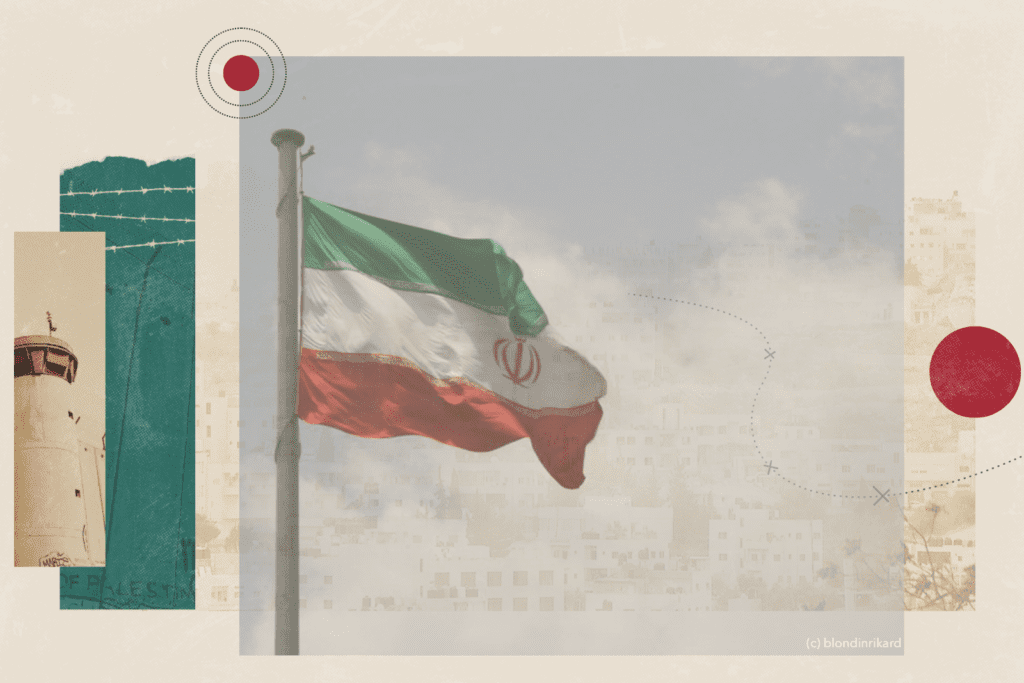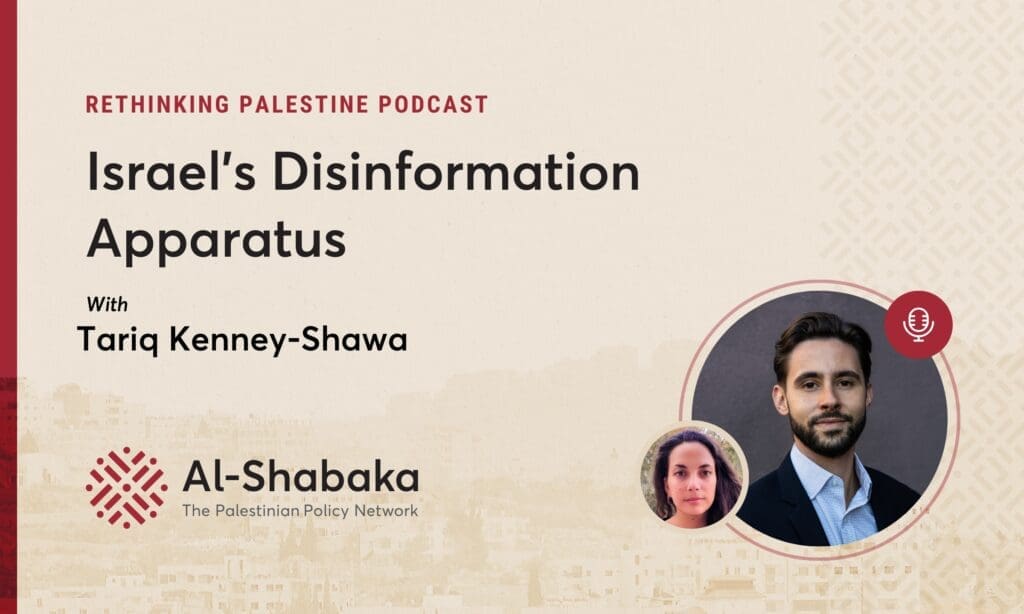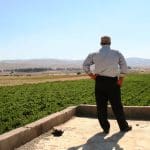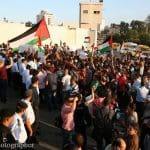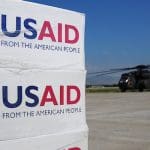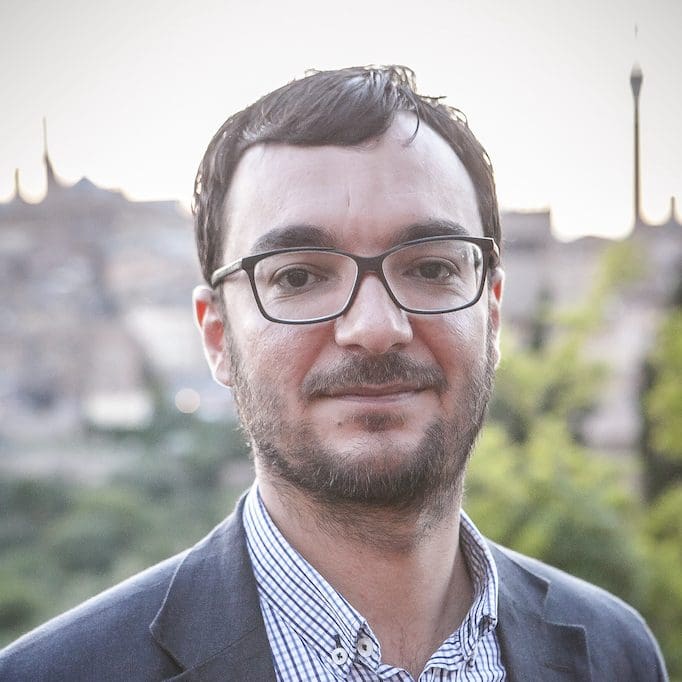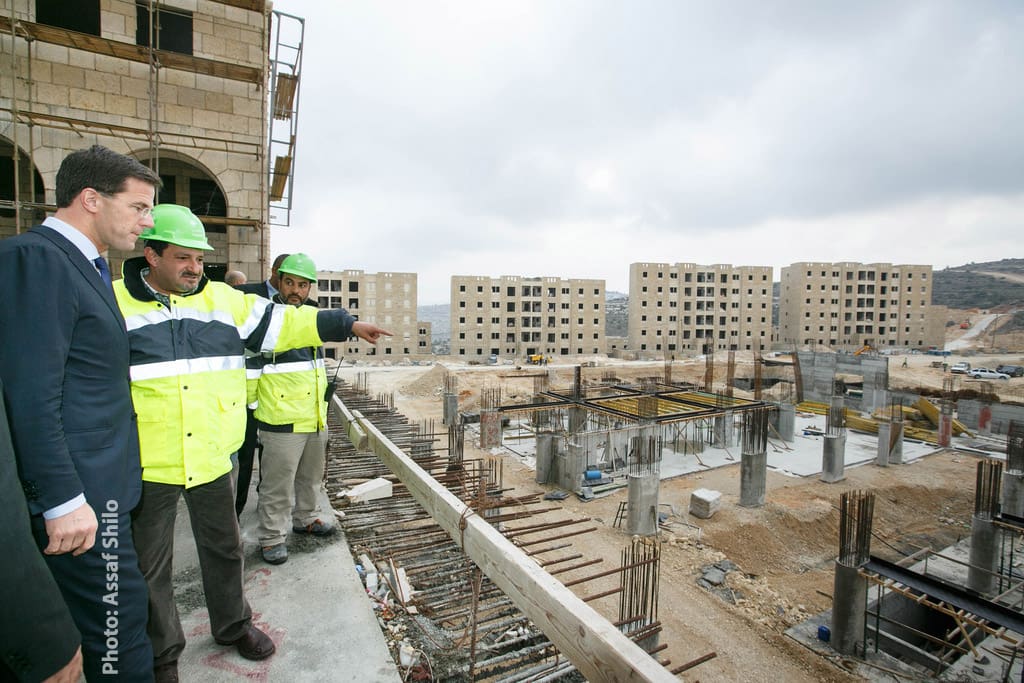
Overview
While most Palestinians living under Israeli occupation are struggling to survive, a powerful group of Palestinian capitalists is thriving and growing in political, economic and social influence. The cost, all too often, is their engagement in economic normalization projects. In other words, they deal with the Israelis as though they were a “normal” business partner rather than an occupying power that has ruthlessly violated Palestinian rights for over 65 years.1
In this policy brief, Al-Shabaka Policy Member Tariq Dana sheds light on the ways in which these Palestinian capitalists exercise political influence and social control and gives examples of the economic normalization projects in which they have engaged.
A Snapshot of Palestinian Capital
The presence of Palestinian businessmen in the political sphere predates the establishment of the Palestine Liberation Organization (PLO). After the PLO’s foundation, Palestinian capitalists played a variety of roles in the national liberation movement. Some PLO factions, particularly Fatah, saw the Palestinian capitalist class as a “national bourgeoisie” and as such an indispensable part of the anti-colonial struggle and dealt with it accordingly.
At the time, Palestinian capitalists’ engagement with the PLO included funding, occupying leading PLO positions, and political mediation. For example, Palestinian businessmen mediated between the PLO leadership and the Jordanian regime during Black September and between the PLO leadership and the American administration during the 1980s. Many were also philanthropists who supported charitable, educational and socio-economic projects. A landmark in this regard was the establishment of the Welfare Association in 1983, a much-needed boost to the Palestinian national project in the educational and socio-economic spheres after the bulk of Palestinian guerrillas were expelled from their base in Lebanon during the 1982 Israeli invasion launched by the late prime minister Ariel Sharon.
Since Oslo, and particularly in recent years, the influence of Palestinian capitalists in the occupied territory has been rising in an unprecedented manner. They can be divided into three main groups:
- “Returnee” capitalists, comprised of a Palestinian bourgeoisie that had emerged in the Arab countries, particularly the Gulf states, as well as in North America and Europe. Many of these businessmen had strong ties to the nascent Palestinian Authority.
- Local capitalists, comprised of two main subgroups: large landowners who historically enjoyed considerable political and social influence over traditional social structures; and local interlocutors who accumulated wealth as subcontractors for Israeli companies after the 1967 occupation.
- The nouveau riche, who acquired wealth in more recent times and who particularly benefited from the Oslo process in various ways as will be discussed further down.
Influencing the Policy Process
Like other Palestinians, businessmen have struggled with statelessness and sought the security that a state would provide, where their companies and profits would be better protected from regional instability and threats. Thus, many of them supported the Oslo accords as a key step towards establishing a Palestinian state, some even imagining that Oslo’s “peace dividends” would transform the West Bank and Gaza into the Singapore of the Middle East.
Early signs of capitalist influence on the nascent Palestinian Authority (PA) can be seen in Article 21 of the Palestinian basic law, which specifies that “the economic system in Palestine shall be based on the principles of a free market economy” (author’s italics.) Paradoxically, even the United States, the global driver of free market capitalism, has a constitution that is flexible enough to allow for different responses to specific economic circumstances. The open espousal of neoliberalism by the PA has helped to create an institutional framework that enables economic interest groups to manipulate policies in the service of private ends.
Neoliberalism combined with political authoritarianism and corruption reinforced and consolidated what can be described as the PA’s crony capitalism. From the earliest days, the PA’s cronyism was expressed in special relations between powerful businesspeople and the PA political and security elite. This system naturally had adverse effects on the economy: By favoring privileged political and economic groups it systemically impeded market competitiveness and excluded the majority of the people’s access to meaningful economic opportunity.2 Indeed, the ability of capitalists to exert influence over government policies was further strengthened and politicians further enriched.
During the 1990s, the special relationship between certain Palestinian capitalists and ruling political circles within the PA led to the centralization of political and economic power in the hands of a few individuals who rapidly managed to transform the national project into a game of interest politics. This was especially the case with regard to the PA elite’s political and security collusion with Diaspora conglomerates in managing large-scale public-private monopolies. Monopolies protected by the PA involved over 25 key imported commodities, including flour, sugar, oil, frozen meats, cigarettes, live animals, cement, aggregate, steel, wood, tobacco, and petroleum.
These monopolies were not only an early sign of PA corruption but also the most obvious expression of the emergent political-economic alliance that found in the PA an effective political mechanism for achieving private economic interests. Furthermore, monopolies were also selectively granted to those Palestinian political-economic actors that enjoyed special proximity to Israeli companies. As a consequence, monopolies have had a devastating impact on the Palestinian economy and small-businesses, and, conversely, benefited the Israeli economy. A number of former Israeli political and military officials became, after their retirement, business partners of some Palestinian capitalists and PA political elites. In return, Israel offered the Palestinian businessmen and politicians special privileges such as access to permits, more freedom of movement and trade and the VIP pass status.
With the appointment of the former Prime Minister Salam Fayyad and the government programs he introduced since 2008, the capitalists’ influence over the political establishment increased. Businessmen and pro-capitalist technocrats often occupied key ministerial positions in Fayyad’s governments.
The “reform” of the banking sector that took place under Fayyad’s governance is an important aspect of rising capitalist political influence. These reforms made it possible for the government to contract long-term loans that amounted to some $4.2 billion in 2013 according to a recent estimate: That is as much as 50% of the GDP, with annual interest running at $200 million. For an economy largely dependent on international aid this high level of public-sector indebtedness is alarming indeed. The ways in which the money was spent and how the PA will pay off its debts remains a mystery.
Furthermore, the high level of public debt enables capitalists to pressure the PA to adjust its policies in conformity with the interests of large private firms by threatening to withdraw some investments or to hold back others, as Alaa Tartir noted in a recent study. Needless to say, the people pay the cost, e.g. when the PA raised income tax and cut expenditure in early 2012.
These Palestinian capitalists’ role has even become prominent in the international political sphere. They put their weight behind US Secretary of State John Kerry’s efforts to drive through a peace settlement with their joint Palestinian-Israeli Breaking the Impasse plan despite the dire impact this would have on Palestinian rights. Moreover, the plan was reportedly prepared without the participation of either Palestinian civil society or the PA itself.
This suggests that local Palestinian crony capitalists have become the primary recipient of international “peace” initiatives. It is difficult to believe that any peace plan they manage would contribute to the Palestinian question for self-determination, freedom, and justice. Rather, it is more likely to be just another lucrative opportunity for those benefiting from the ongoing status quo.
Social Control through Debt and Other Means
As in other parts of the world, the development of the neoliberal system has been underpinned by various mechanisms of social control to normalize the occupation and pacify and de-radicalize groups seeking to resist it using different means.3 Social control practices in Palestine have a particularly destructive impact because they tie into the set of colonial controls engineered by the occupation.
Crony capitalists have attempted to practice social control by recruiting civil society to serve their objectives, working alongside major international donors. One way is through the establishment of large NGOs that tend to penetrate the social fabric by promoting certain values designed by international financial institutions and development agencies to sustain the neoliberal system. These NGOs’ values are expected to trickle down to other indigenous civil society organizations via capacity building and other projects.
Another aspect of social control is the facilitation of private lending, which encouraged a culture of consumption and pushed many people into the debt trap. According to the Palestine Monetary Fund, individual loans shot up to about a billion U.S. dollars in 2013 from about $494 million in 2009. It is estimated that 75% of public sector employees (94,000 out of 153,000) are in debt. The personal debt is primarily used to finance consumption (including mortgages, cars, marriage costs, and electric goods) and is rarely invested in productive activities. This state of personal indebtedness has major social ramifications because it promotes a sense of individualism and drives personal private concerns, systemically pushing people to abandon crucial national issues. It fosters political apathy and undermines critical thinking and action against the very oppressive nature of the system.
Yet another method of social control is the exploitation of workers that occurs in factories owned by some local capitalists, where workers are paid much less than the government’s recently announced minimum wage of 1,450 NIS ($377) for the private sector. “Although workers protested the PA declared minimum wage because it does not guarantee the minimum standards of living, many of us are still working under humiliating conditions, where our salaries are even less than 1000 NIS. But despite that, we have to accept this, otherwise we will be thrown into the streets” (author’s interview.) This exploitation and control of Palestinian labor force is exacerbated by the lack of effective labor unions, which have been dramatically weakened by both the PA and capitalists alike.
There are fears that the system of workers’ exploitation and control will be expanded and institutionalized through industrial zones that are intended to integrate Palestinian-Israeli-regional capital to exploit the pool of Palestinian cheap labor. According to Adam Hanieh, the industrial zones will not apply Palestinian or Israeli labor laws, wage levels and other workplace conditions, while the right to unionize will be prohibited.
Normalizing the Occupation the Economic Way
Economic normalization is institutionalized in a wide range of joint activities such as joint industrial zones, Israeli-Palestinian business forums, Palestinian investments in Israel and its settlements, and joint management of water resources. This is the highest level of normalization activity in the history of the Palestinian struggle for national liberation (see the academic and cultural pages of the boycott, divestment and sanctions (BDS) movement for a definition of normalization.)4
Groups working for Palestinian human rights and self-determination have openly denounced some of the Palestinian crony capitalists. The capitalists counter by claiming that they are simply seeking to serve the Palestinian economy and people’s steadfastness. In fact, Palestinian-Israeli joint projects represent the ugliest face of normalization because of their scale and size and, most importantly, because they help the occupying power to profit and to further infiltrate its structures into the occupied territory. A few examples of large normalization projects are listed below.5
Rawabi
This planned city is one of the largest private investments in the West Bank and one of the most controversial large-scale projects. Whether it is by accepting and planting some 3,000 trees donated in 2009 by the Jewish National Fund (which were later uprooted due to criticism) or by contracting over 10 Israeli companies as suppliers, Rawabi exemplifies the way in which profits for private corporations and economic normalization are propagated under the banner of a “national project.”
The Industrial Zones
The industrial zones in the occupied territory are driven by the same logic of the Qualifying Industrial Zone (QIZ) in Jordan and Egypt. They give life to Shimon Peres’ ambition of a “New Middle East” where Israel is seen as the hegemonic economic center of the region. Industrial zones are also highly problematic because they integrate Palestinian-Israeli-regional capital into a remorseless machine to exploit cheap labor – Palestinian as well as foreign imported labor. Even as they benefit a few local business elites, they advance the Israeli matrix of control and perpetuate its occupation.
Palestinian investments in Israel and the settlements
According to one study, Palestinian capital is being invested in Israel and its illegal settlements at far higher rates than in the West Bank – between $2.5 billion and $5.8 billion versus only $1.5 billion. The Palestinian Ministry of Economy has accused the study of lacking accuracy and objectivity while some economists have said it suffers from serious methodological problems. Yet its main message remains noteworthy. A staff member at the Ministry of the Economy said: “Many Palestinian businessmen are investing in industrial settlements such as Barkan, Ma’ale Adumim and other agro-industrial parks in the Jordan Valley.” (author’s interview.)
Another investigative study found that many Palestinian companies are involved in products laundering in the Jordan Valley. They fraudulently brand settlers’ agricultural products as “products of Palestine” and then export these to international markets thus evading the boycott campaigns in some European countries.
Contracting Israeli Security Companies
A recent report reveals that some Palestinian companies (Ramallah Mövenpick hotel, the Bank of Jordan, Jordan Ahli Bank, Cairo Amman Bank, Pal-Safe) are listed as clients of Netacs Ltd. This Israeli security company is owned by reserve Major-General Danny Rothschild, who commanded Israeli occupation forces in the West Bank and Southern Lebanon and worked in military intelligence.
Palestinian-Israeli Partnership in Tech Ventures
Several Palestinian entrepreneurs are collaborating and partnering with Israeli high-tech corporations. The case of the Ramallah-based SADARA venture is just one example. It was cofounded by Saed Nashef and Yadin Kaufmann and is managed by a team of Israeli and Palestinian experts in technological innovation and Internet services. Forbes magazine ran a lengthy report highlighting the role of the Israeli Cisco Systems in bringing together high-tech Israeli experts and Palestinian entrepreneurs to help transform the Palestinian economy along the lines of Israel’s successful “Startup Nation.” The report also reveals that several Palestinian youth in the field of high-tech are being invited to meet and work with their Israeli counterparts in the back room, which is ” just one of dozens of business-driven dialogues quietly – in many cases secretly – proliferating across the Holy Land.”
What Must Be Done?
The political and social influence of Palestinian crony capitalists and their ongoing economic normalization of Israel’s occupation should alarm all those concerned about the future of the Palestinian cause. In chasing after profits without regard to Palestinian fundamental rights and national aspirations, these capitalists have gone too far. Their mechanisms of social and political control, and their flagrant complicity in normalization projects are a structural obstacle to the anti-colonial struggle and undermine the Palestinian quest for justice. Several steps can and must be taken, including:
- Local businessmen and investors must resist Israeli attempts to involve Palestinian capital in normalization projects. No interaction between Palestinian capital and Israeli businesses could ever serve Palestinian national development and steadfastness.
- If it is not to be seen to be complicit, the PA must design and implement regulations that direct the way that Palestinian capital is being invested and it must rigorously monitor this process to ensure that it serves Palestinian national goals. Effective mechanisms for public accountability are needed that encompass diverse social sectors and authentic civil society actors.
- Civil society and academic institutions are playing an important role through the studies they have conducted and by drawing attention to the issue. However, more must be done to hold those Palestinian capitalists that have strayed to account, as the BDS movement has done on occasion. Sustained campaigns are needed to make their position untenable.
- Investment and business development must take into account Palestinian human rights and dignity and gradually reduce the levels of dependency on international aid and on the Israeli economy, creating the basic conditions for different forms of struggle and steadfastness. More specifically, there a need to develop a model of development based on the concept of resistance economy based on self-reliance, self-sufficiency, a just redistribution of the national wealth, and a bureaucracy that serves a democratic people-driven political, economic, social and development agenda.
The change that is needed requires a major restructuring of the overall political framework. More than anything else, the Palestinians need a leadership that is dedicated to resisting the occupation and working for Palestinian self-determination, liberation, justice and equality.
- Al-Shabaka publishes all its content in both English and Arabic (see Arabic text here.) To read this piece in French, please click here. Al-Shabaka is grateful for the efforts by human rights advocates to translate its pieces into French, but is not responsible for any change in meaning.
- See for example: Mushtaq Husain Khan, George Giacaman and Inge Amundsen (eds.) _State Formation in Palestine: Viability and Governance during a Social Transformation_, (2004, Routledge Political Economy of the Middle East and North Africa).
- For further reading on the mechanisms of social control in capitalism and neoliberalism see, for example: David Tetzlaff, [Divide and conquer](http://mcs.sagepub.com/content/13/1/9.extract): popular culture and social control in late capitalism, Media Culture Society, 1991, vol. 13 no. 1 9-33; Stephen Gill, [Globalisation, Market Civilisation, and Disciplinary Neoliberalism](http://graduateinstitute.ch/files/live/sites/iheid/files/sites/political_science/shared/political_science/3142/gill%20glob-1.pdf), Millennium – Journal of International Studies, December 1995 vol. 24 no. 399-423.
- A key paragraph is: “The participation in any project, initiative or activity, in Palestine or internationally, that aims (implicitly or explicitly) to bring together Palestinians (and/or Arabs) and Israelis (people or institutions) without placing as its goal resistance to and exposure of the Israeli occupation and all forms of discrimination and oppression against the Palestinian people.”
- For further reading see, for example, Khalil Nakhleh, _Globalized Palestine: The National Sell-Out of a Homeland_, The Red Sea Press, Inc.; 1st ed., 2011.




